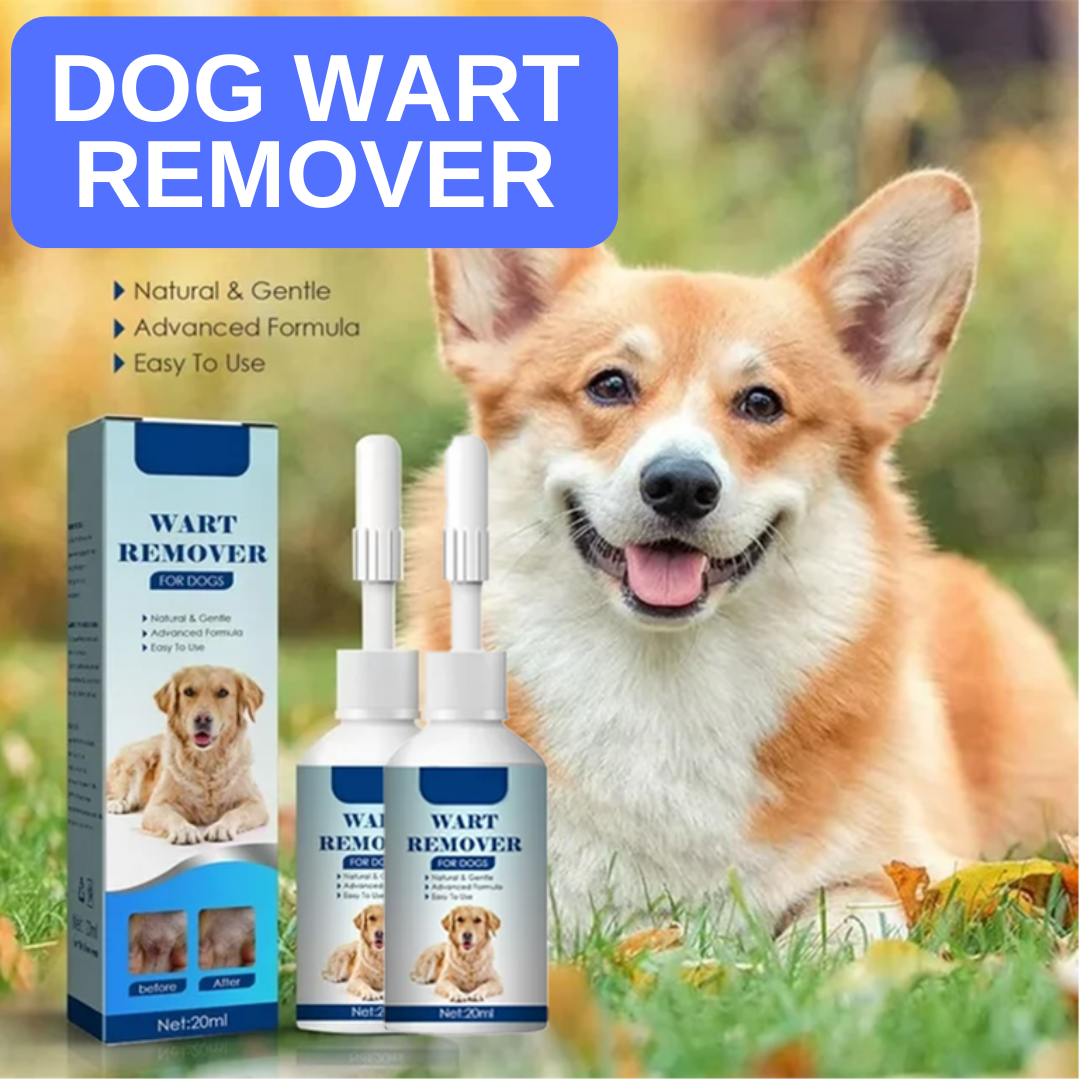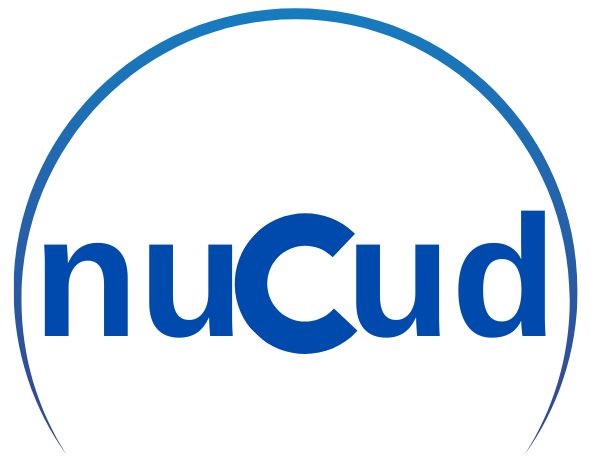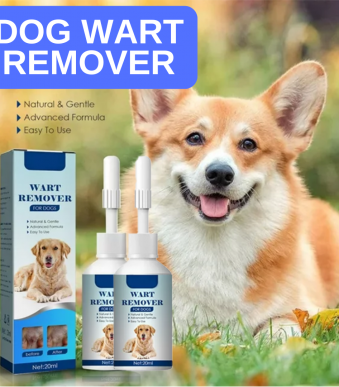NUCUD
New Product: Dog Wart Remover
the best product
dog wart remover
Dog wart treatment:
Nucud dog wart remover
dog wart remover

Discover all the ways to get your product.

Free Shipping!
Free shipping on orders of $50 or more.
Dog Wart Remover (1ozl) 100% Natural Painless
In stock
New Product: Dog Wart Remover
Best Dog Wart Remover: Safe and Effective Solutions for Your Furry Friend
Warts on dogs are common and usually benign, but they can be bothersome and unsightly for your pet. These small, cauliflower-like growths are often caused by the papillomavirus and tend to appear around a dog's mouth, face, or paws. In most cases, they don’t require treatment, but some pet owners prefer to remove them for comfort or aesthetic reasons. Finding the best dog wart remover can help in providing a safe, effective solution for your pet.
In this article, we’ll discuss natural remedies, over-the-counter options, and veterinary treatments to help you decide on the best course of action for your furry friend.
Understanding Dog Warts: What Are They?
Dog warts, also known as papillomas, are growths caused by the canine papillomavirus. They appear as small, rough lumps, often around the mouth, lips, or other areas where dogs commonly lick or chew. Young dogs, or those with weaker immune systems, are more prone to developing warts, though they can occur in any age group. While they are generally harmless, certain cases may cause discomfort or risk infection.
When to Remove Dog Warts?
Most warts in dogs will disappear over time as their immune system fights off the virus. However, in some cases, removal might be considered if:
- The wart is causing discomfort or pain.
- It’s located in an area prone to rubbing or irritation.
- It’s growing in size or appears infected.
- It interferes with eating or other daily activities.
Dog Wart Remover Options
Natural Remedies
- Apple Cider Vinegar: Known for its antiviral properties, apple cider vinegar can be an effective, natural dog wart remover. To apply, dilute apple cider vinegar with water and apply it directly to the wart using a cotton ball once or twice daily. It may take several weeks to see results.
- Castor Oil: Castor oil has healing properties that can soften and shrink warts over time. Simply apply a few drops to the wart once daily.
- Vitamin E Oil: Another safe, natural option, Vitamin E oil helps nourish the skin and promote healing. Puncture a Vitamin E capsule and apply the oil to the wart daily.
Over-the-Counter (OTC) Dog Wart Removers
- Dog-Specific Wart Removal Products: Several veterinary-recommended, over-the-counter products are available specifically for dog wart removal. These treatments usually come in easy-to-apply creams or gels. When choosing a product, ensure it’s safe for dogs and follow the instructions carefully.
- Homeopathic Remedies: Some homeopathic treatments, such as thuja extract, are popular among dog owners for treating warts naturally. These are often found as oral drops or topical treatments.
Veterinary Removal Options
- Cryotherapy (Freezing): Veterinarians often recommend cryotherapy for larger or persistent warts. This method involves freezing the wart with liquid nitrogen, causing it to fall off after a few days.
- Laser Removal: Laser removal is a more advanced option, often used for difficult-to-reach or stubborn warts. It’s a quick procedure, though it may be more expensive than other methods.
- Surgical Removal: For warts that don’t respond to other treatments or are causing severe discomfort, surgical removal may be necessary. This option is often used as a last resort due to its invasive nature and higher cost.
Safety Tips for Using Dog Wart Removers
When applying any dog wart remover, prioritize safety:
- Always consult a vet before starting any treatment, especially for larger or multiple warts.
- Avoid using human wart removers, as these may contain ingredients harmful to dogs.
- Be mindful of the ingredients and ensure they are dog-safe.
- Observe for any signs of irritation or allergic reactions, and discontinue use if you notice any issues.
Frequently Asked Questions
Are Dog Warts Contagious to Other Pets? Yes, warts can be contagious, especially among young dogs with weaker immune systems. Keep infected dogs away from others to minimize the spread of the virus.
How Long Do Dog Warts Take to Heal? With treatment, warts can start shrinking within a few weeks, but full recovery can take several months. Without treatment, most warts go away on their own within six to twelve months.
Can I Use a Human Wart Remover on My Dog? No, it’s not safe to use human wart removers on dogs as they may contain chemicals or ingredients toxic to pets. Always choose dog-specific treatments.

